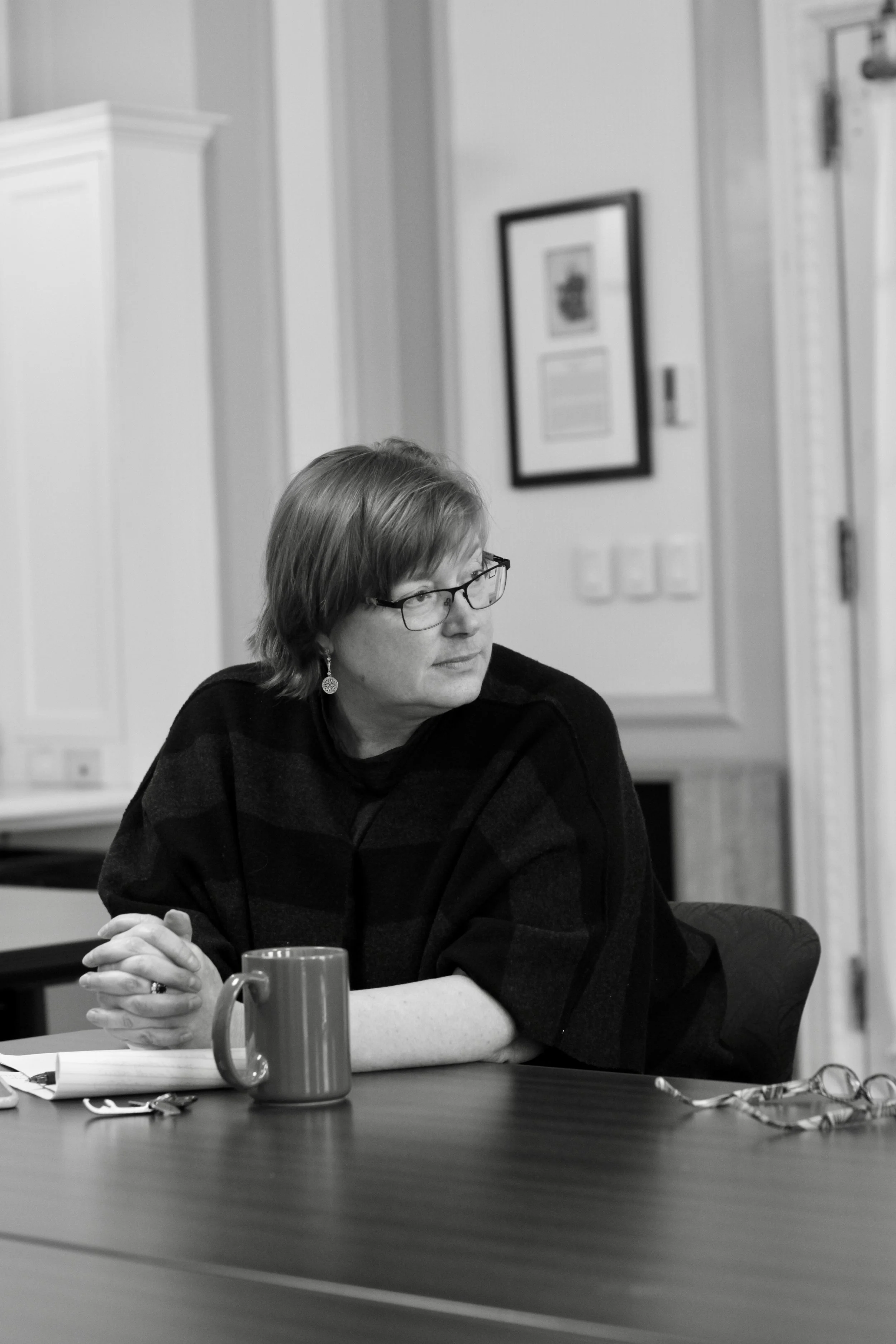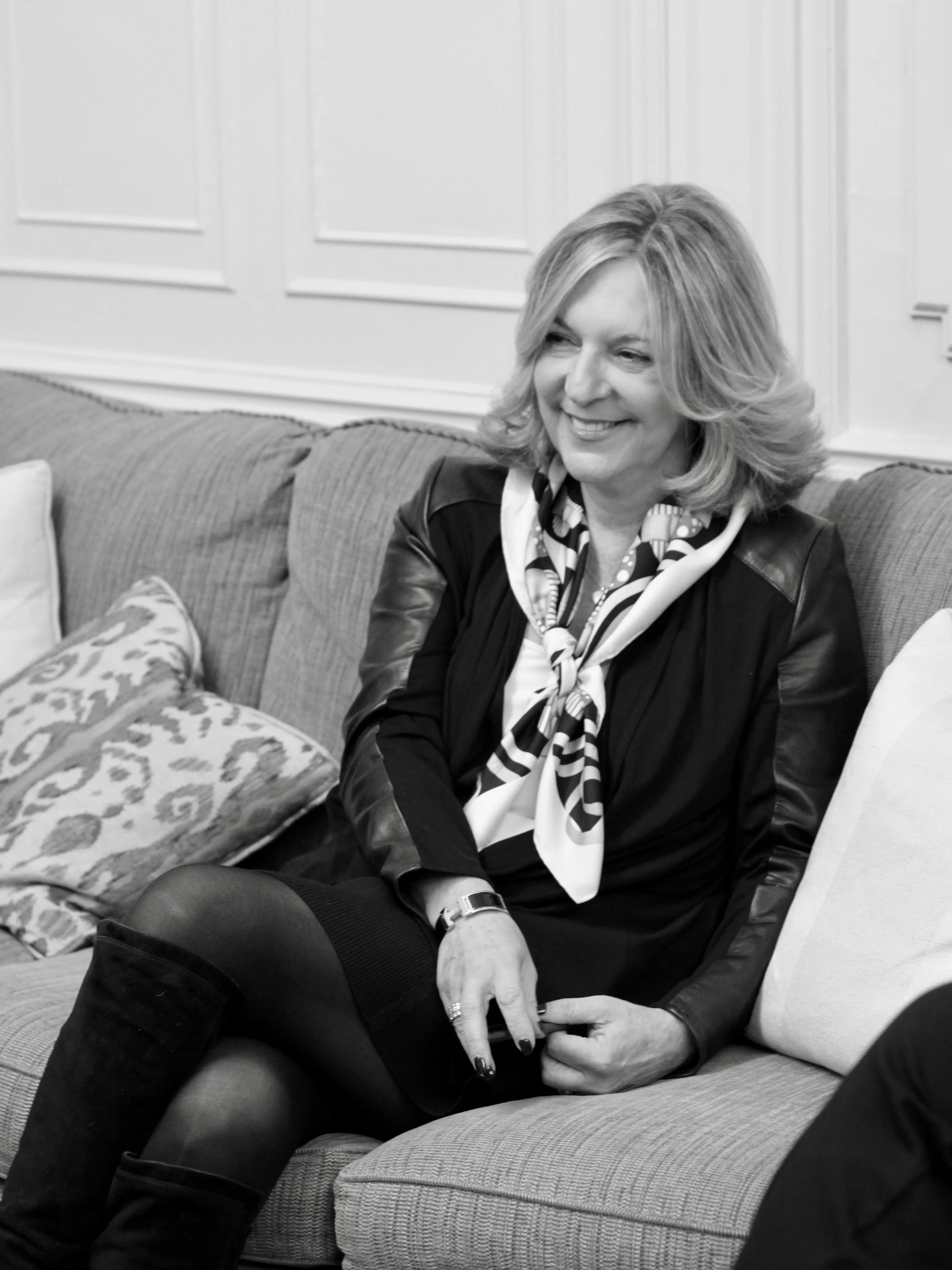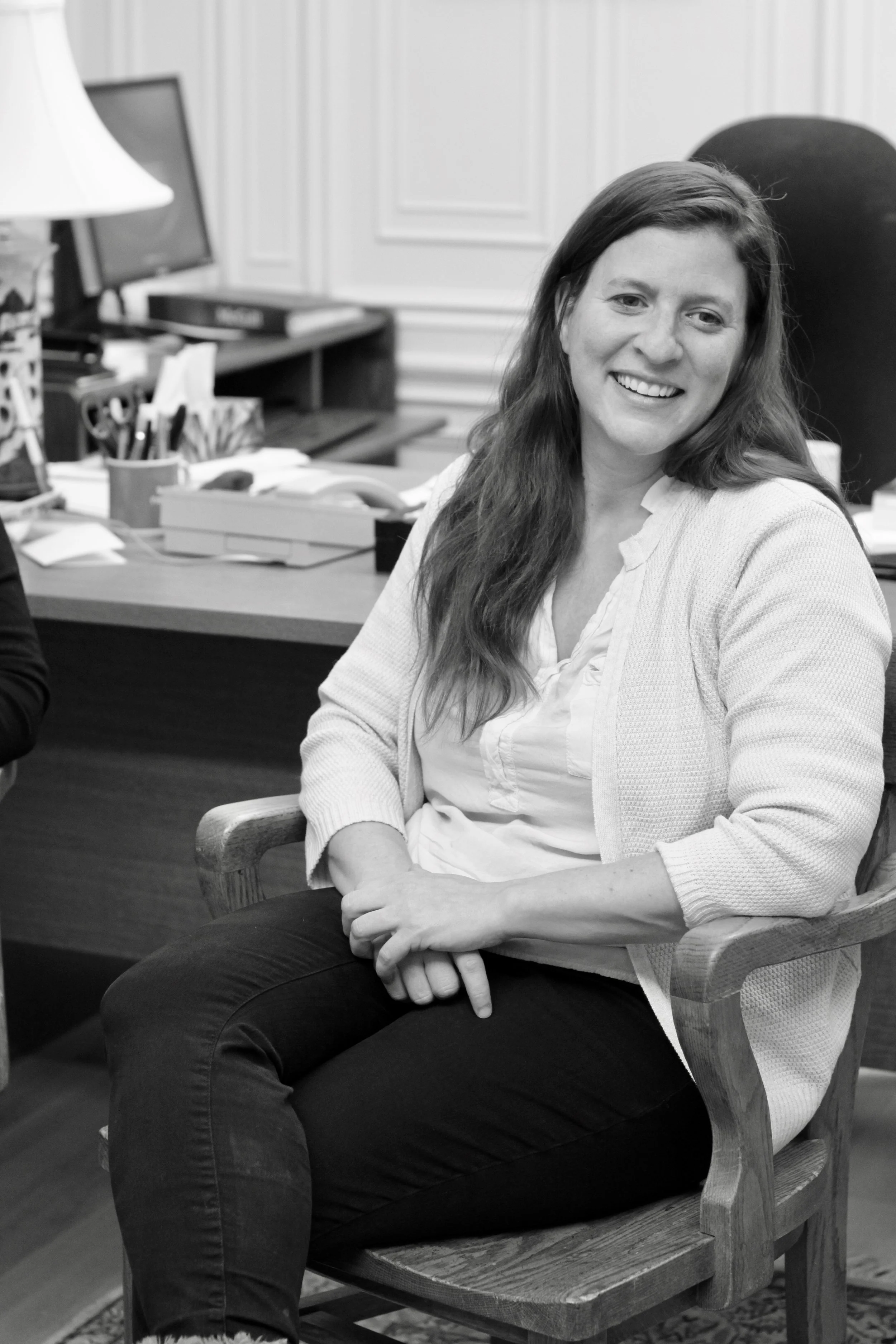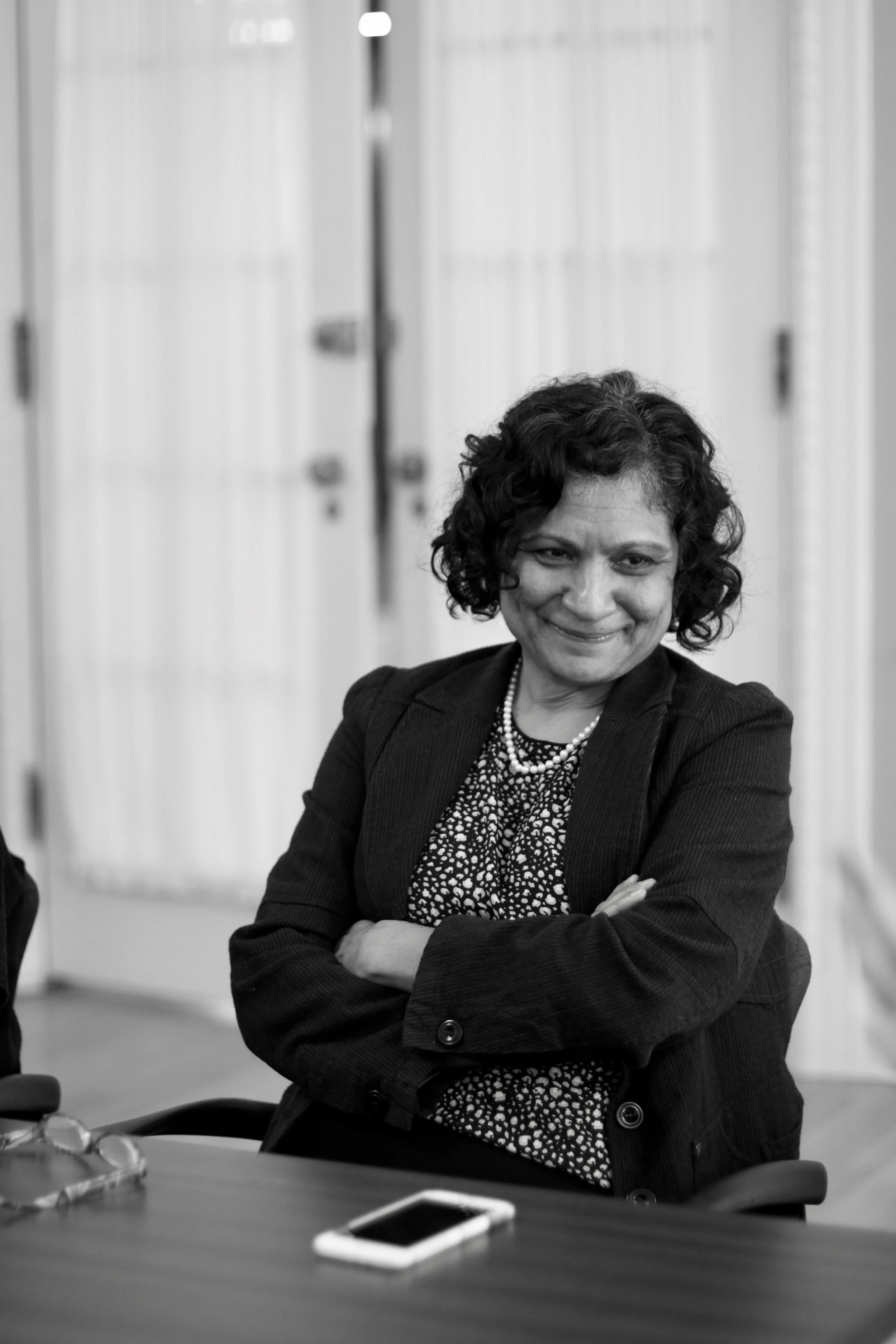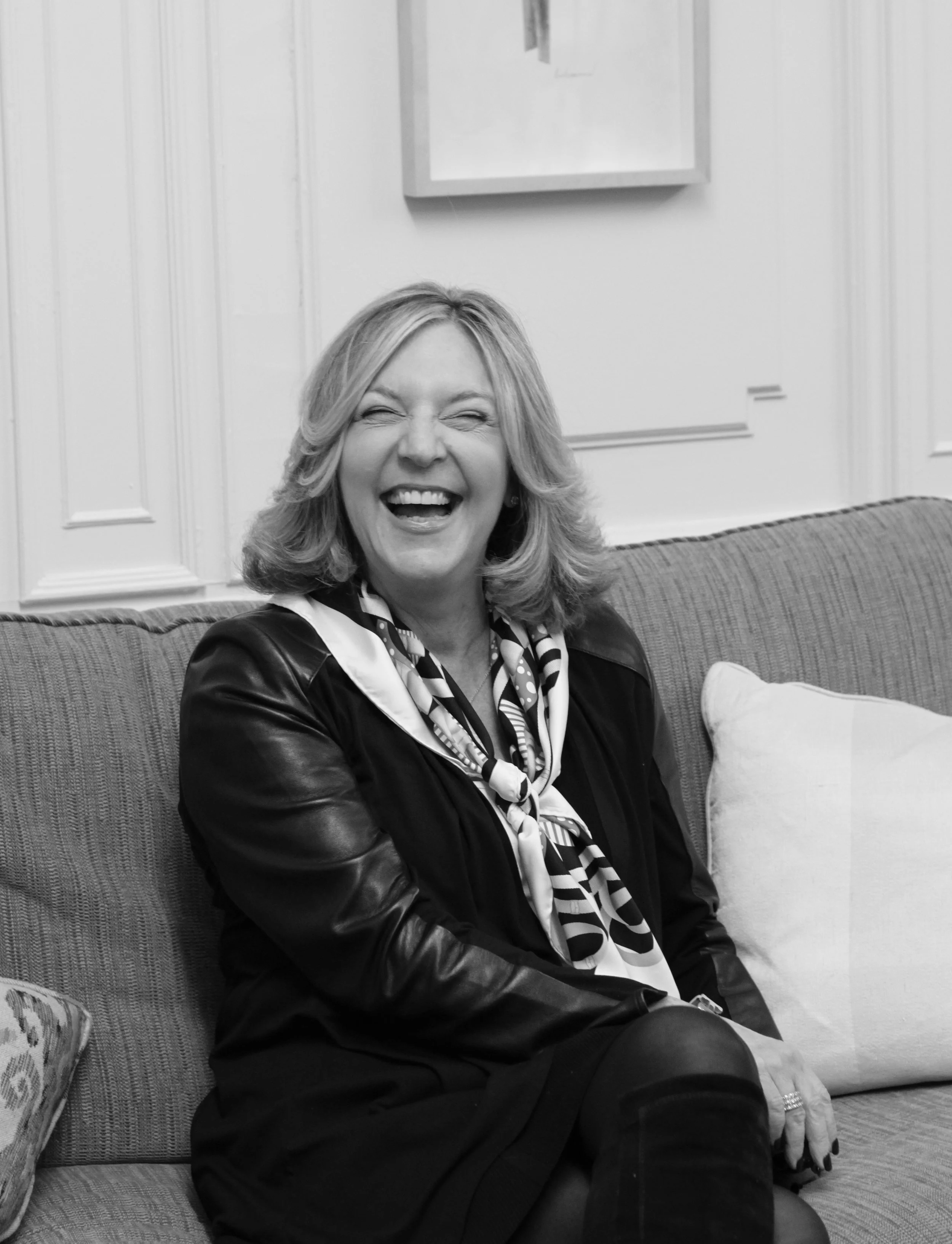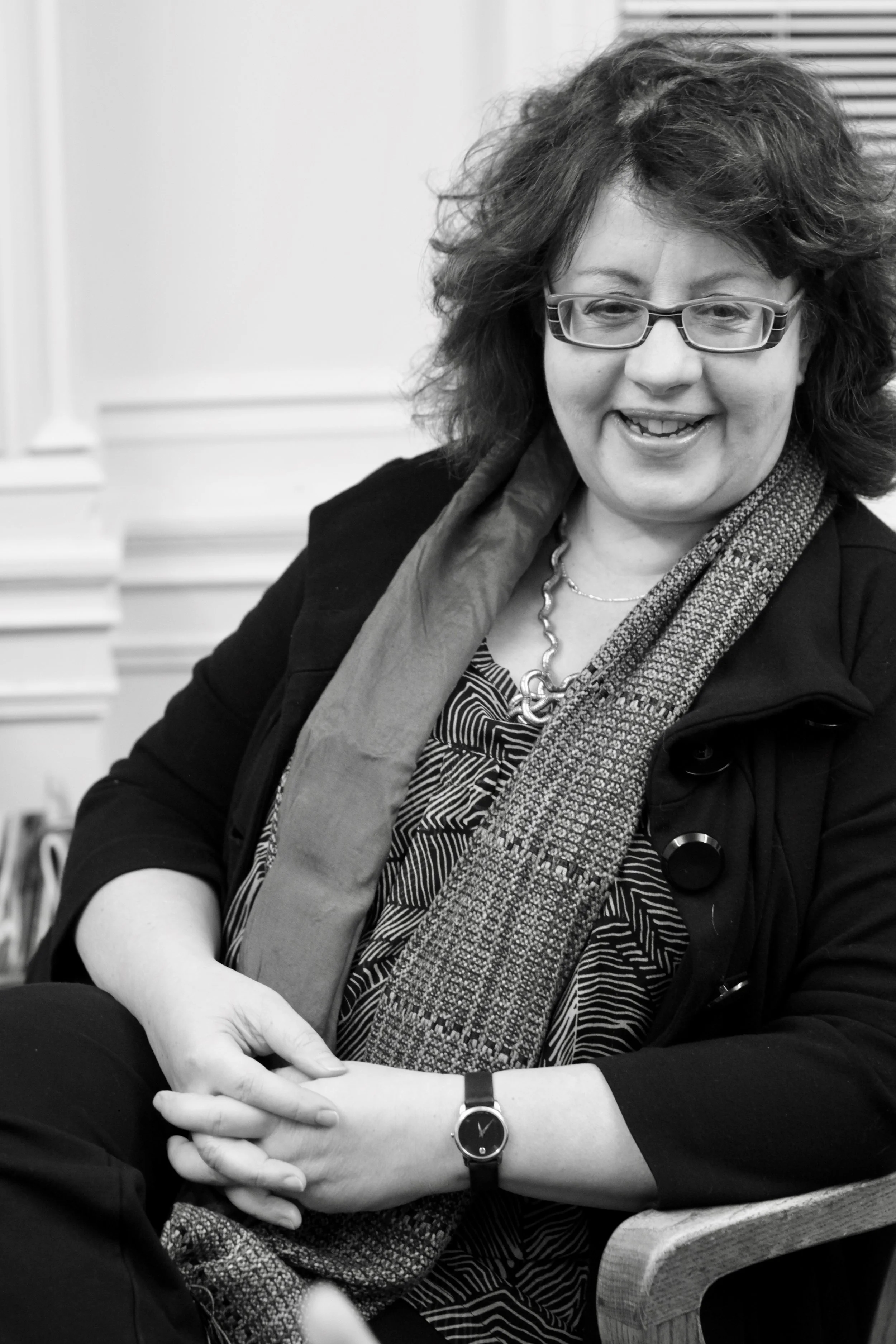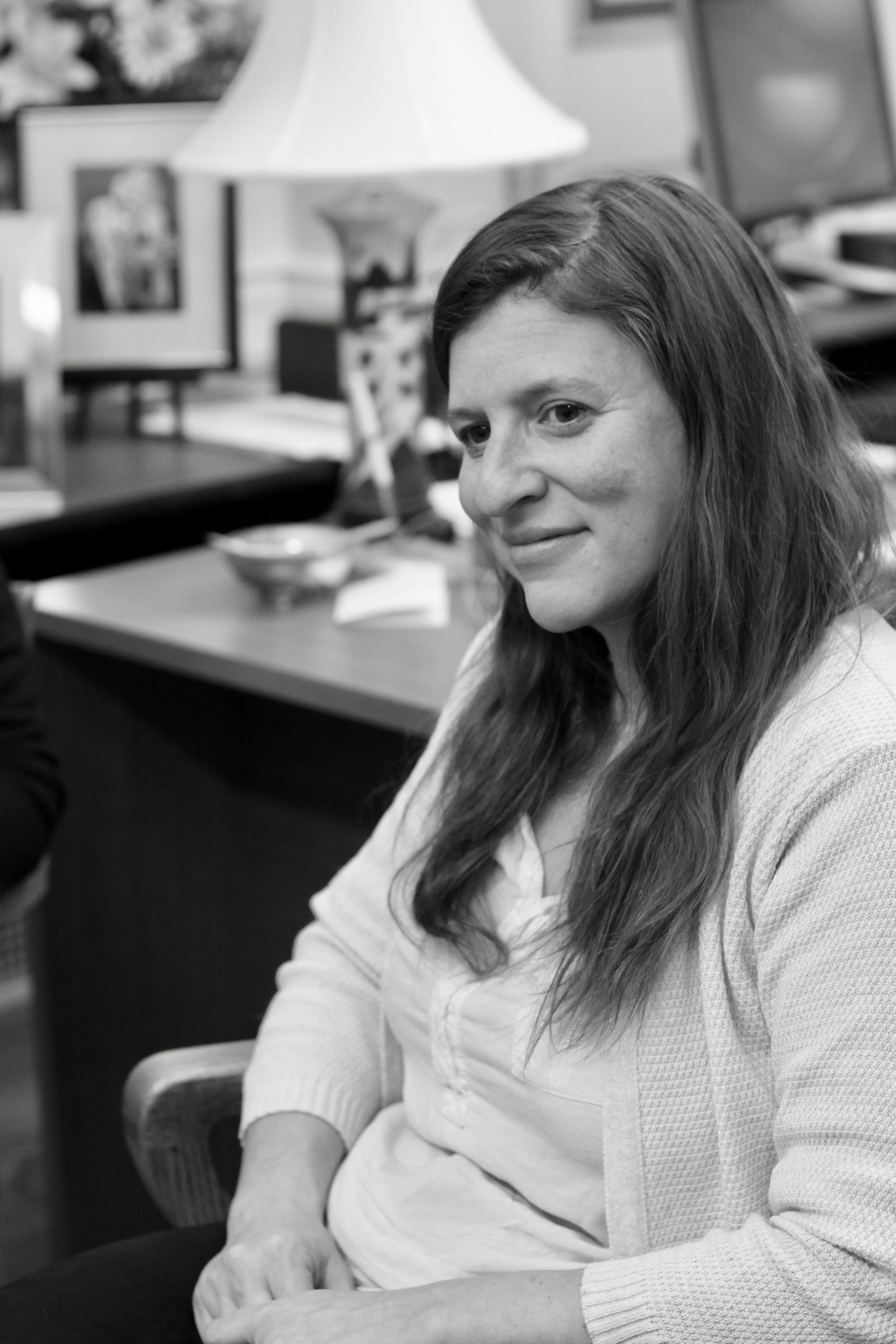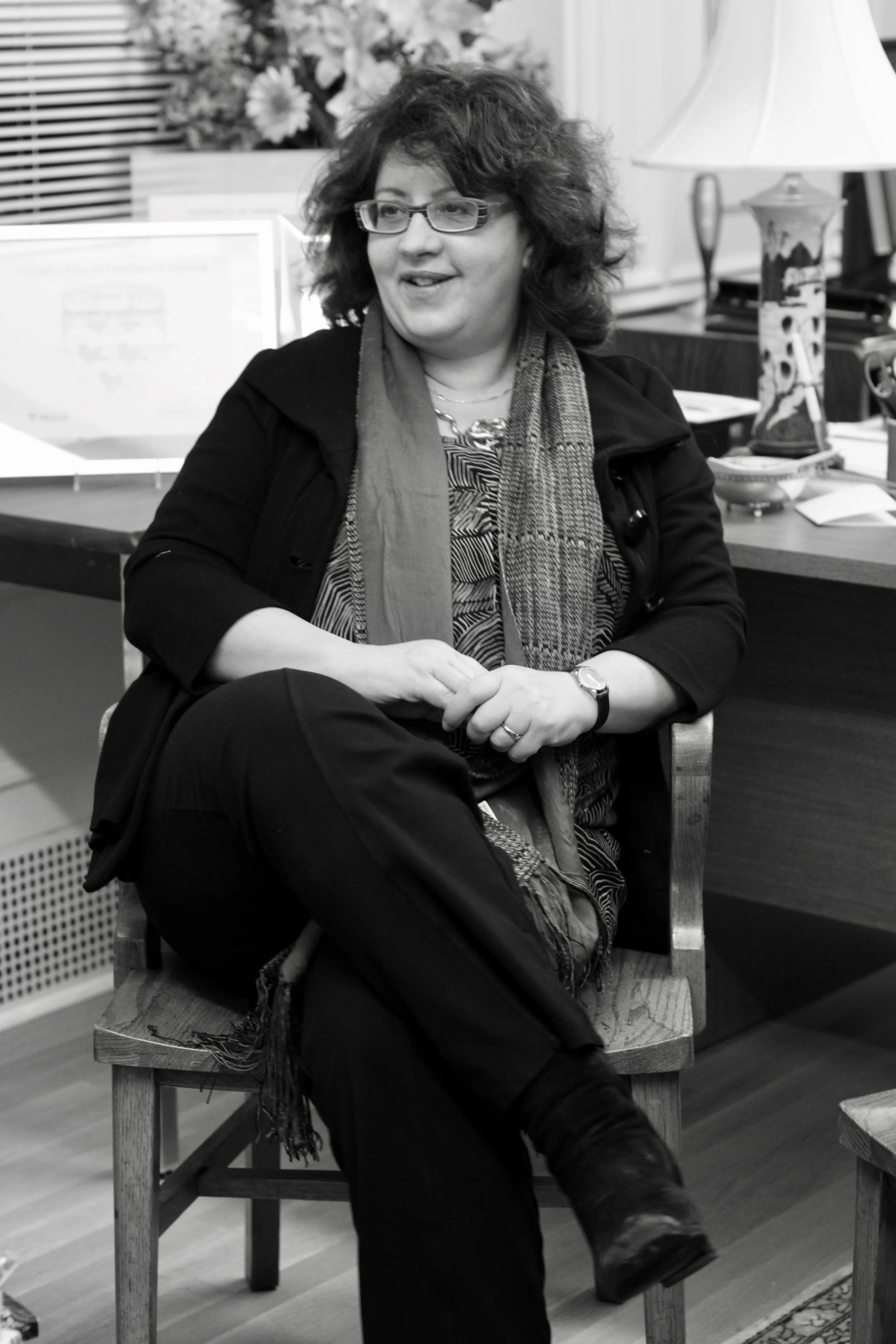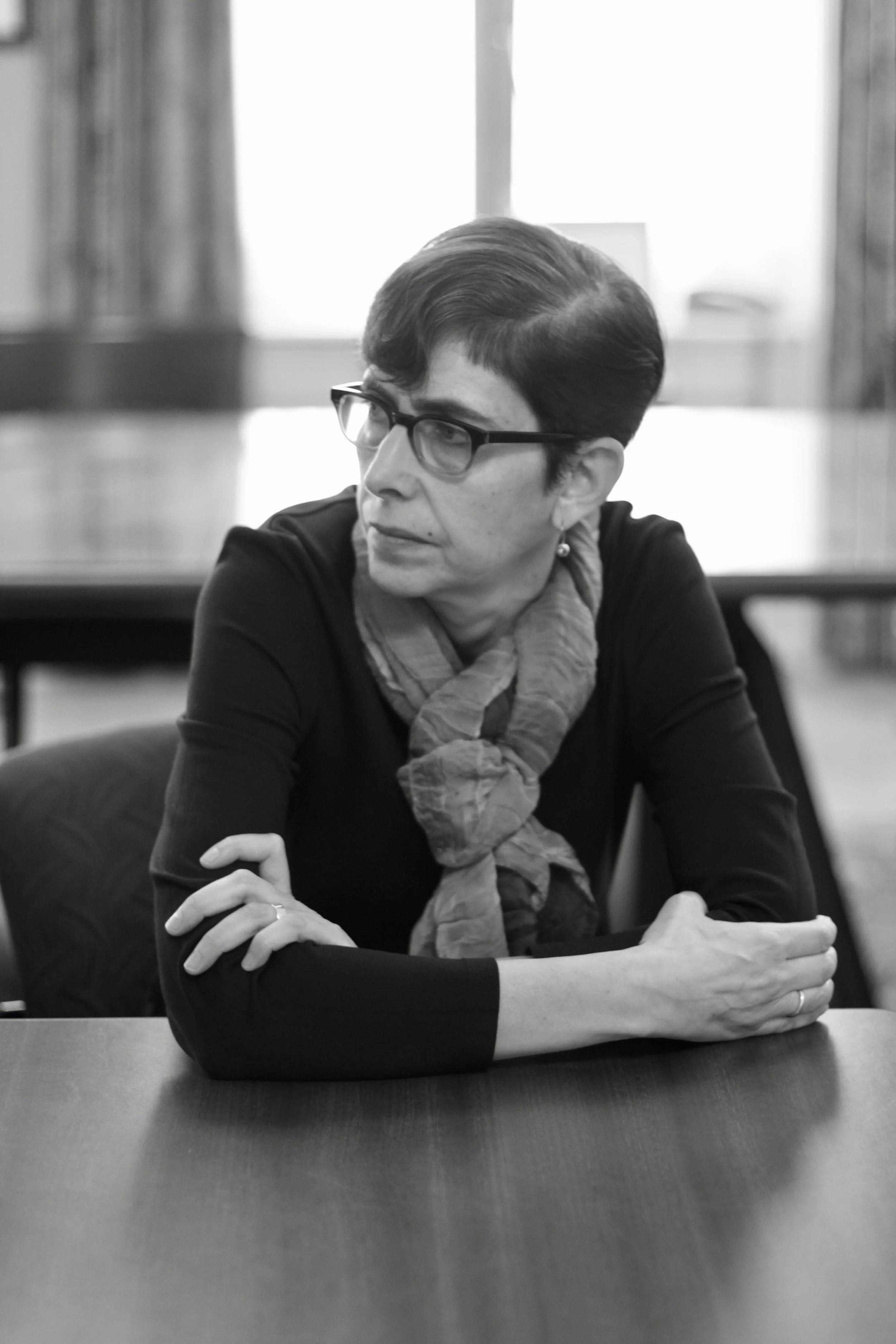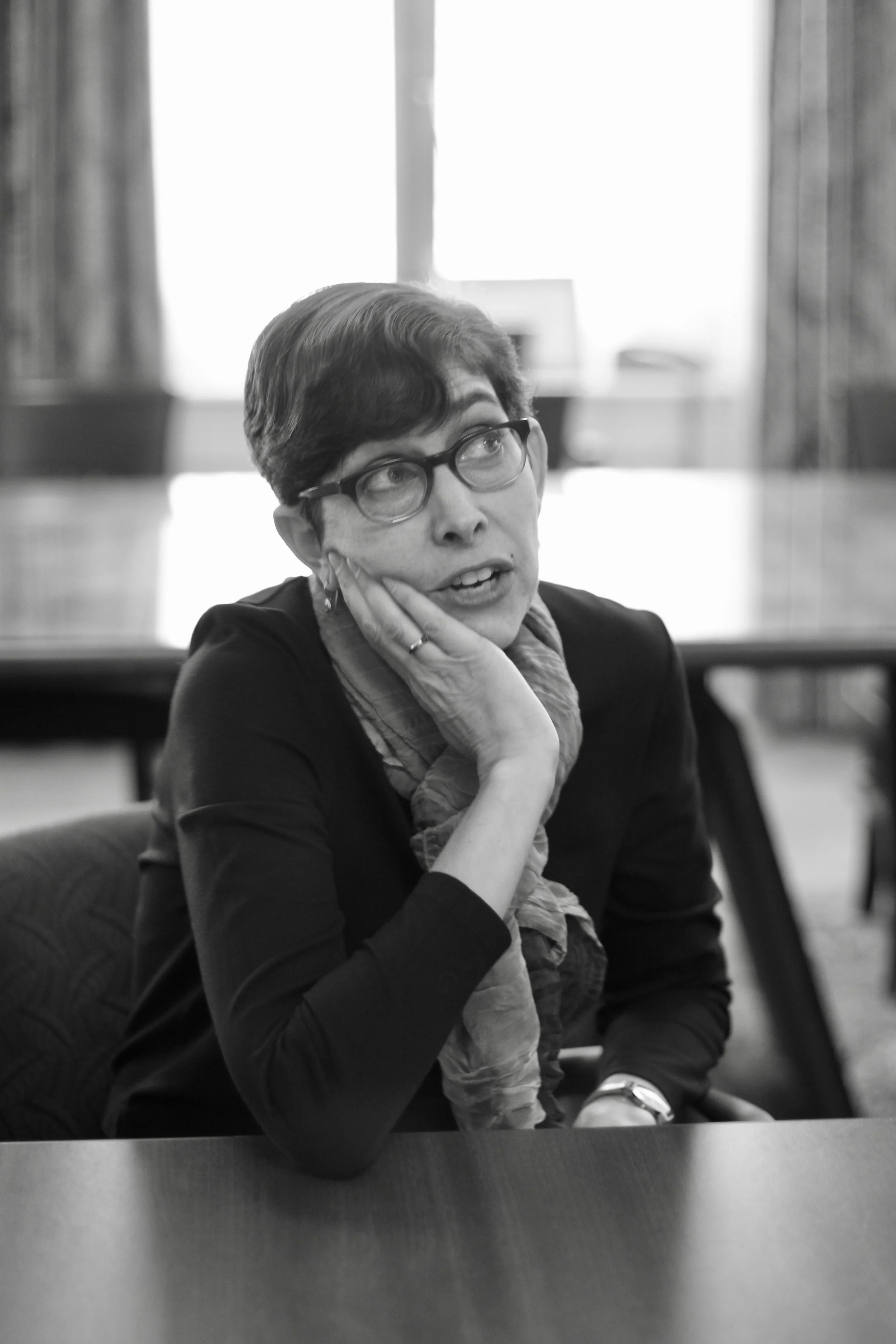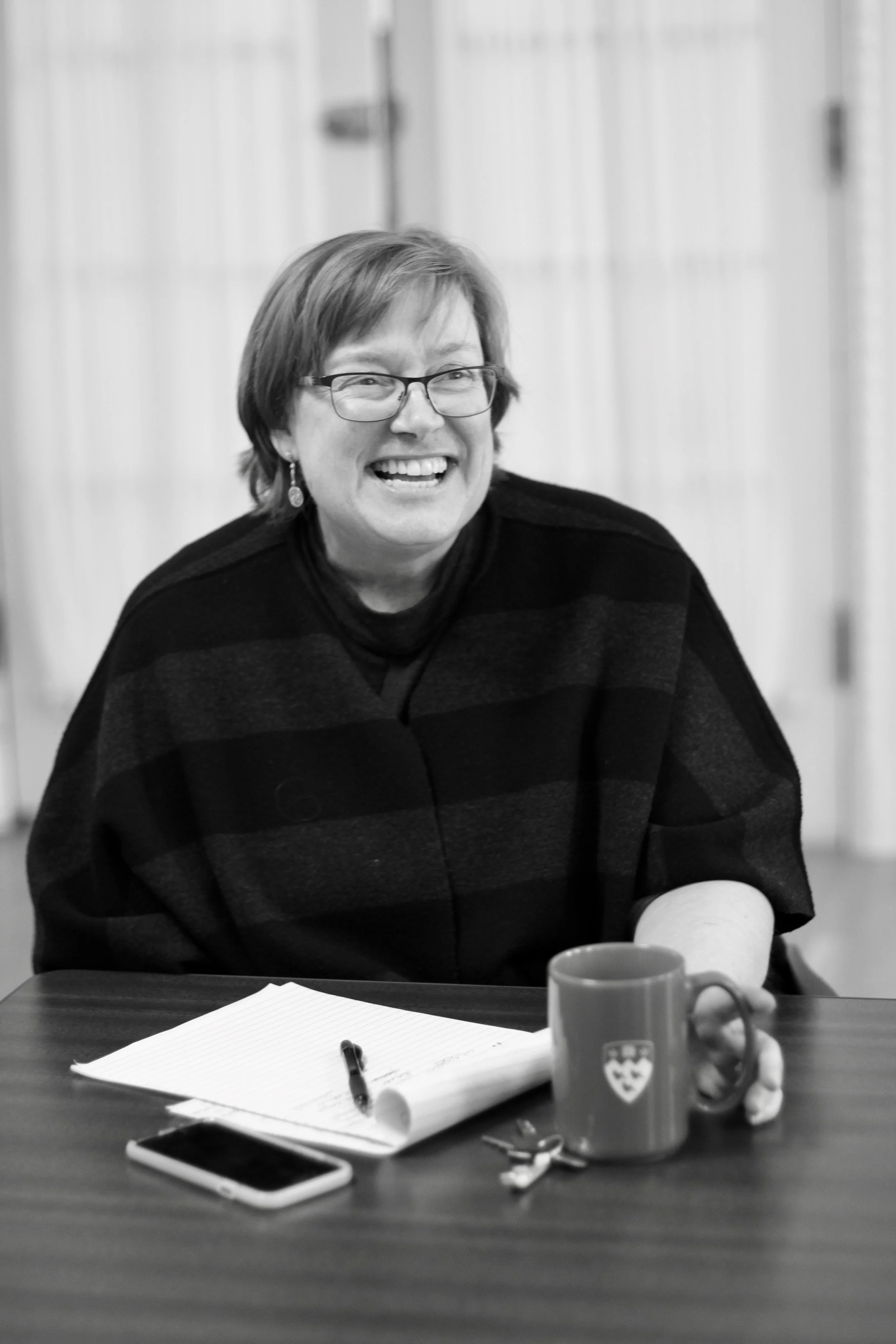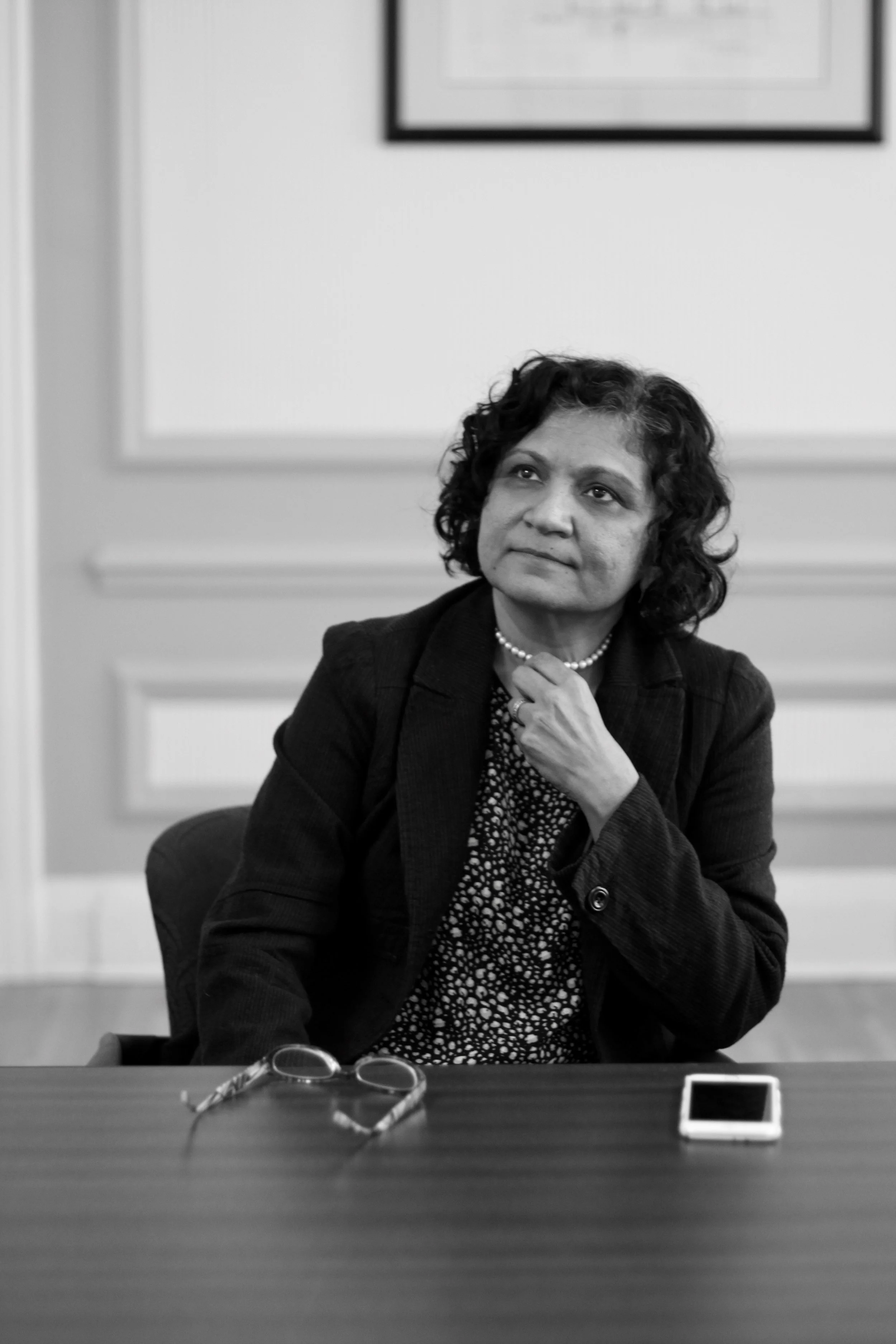Teaching the Law: A Roundtable Discussion
Edited By: Contours Editorial Team
Photographed By: Ana Lucia Lobos
In Discussion with:
Andrea Bjorklund joined the McGill Faculty of Law in July 2013 as a full professor and holder of the L. Yves Fortier Chair in International Arbitration and International Commercial Law. Prior to entering academia, Professor Bjorklund worked on the NAFTA arbitration team in the U.S. Department of State's Office of the Legal Adviser and worked for Commissioner Thelma J. Askey on the U.S. International Trade Commission. She teaches Advanced Common Law Obligations as well as upper year classes in international trade and arbitration.
Pearl Eliadis is a lawyer in private practice in Montreal with practice areas focusing on human rights, national institutions, and democratic governance. She works mainly with institutional and multilateral clients, including the United Nations Development Programme, the Office of the United Nations High Commissioner for Human Rights, UN Women and the European Commission. Currently, she is co-chair of the Canadian Centre for International Justice and President of the Quebec Bar Association's Human Rights Committee, and teaches Civil Liberties at McGill's Faculty of Law.
Rosalie Jukier has been a professor at the McGill Faculty of Law since 1985. She has held many administrative positions including Dean of Students from 1995-2001. From 2005-2007 she was a Senior Advisor to the National Judicial Institute in Ottawa, an organization dedicated to the development and delivery of legal education for judges. She teaches in both the civil and common law legal traditions, primarily in the areas of Contractual Obligations and Judicial Institutions and Civil Procedure.
Alana Klein joined the McGill Faculty of law in 2008. Prior to joining the faculty, she was a senior policy analyst with the Canadian HIV/AIDS Legal Network and taught at Columbia Law School and Columbia University, where she completed her doctorate. She has served on the Ontario Human Rights Commission, and as a law clerk to former Supreme Court of Canada Justice Louise Arbour. Currently, she is the President of the Board of the Mile End Legal Clinic and teaches the new first year Criminal Justice course.
Nandini Ramanujam is an Associate Professor (Professional) and the Executive Director and Director of Programs for the Centre for Human Rights and Legal Pluralism at McGill University’s Faculty of Law. She also directs the International Human Rights Internship Program as well as the Independent Human Rights Internships Program. She has worked and studied all over the world, gaining extensive experience in human rights issues, strategic planning, governance, and programming, with a particular focus on education and civil society. She teaches upper year classes in human rights and development.
Shauna Van Praagh has taught and researched at the McGill Faculty of Law since 1993. She served as Associate Dean (Graduate Studies) from 2007-2010. She chaired the 1995-96 Committee on Curricular Reform, which produced the blueprint for the revised program of legal education introduced in 1999. She teaches Extra-contractual obligations/Torts to first year law students, Advanced Common Law Obligations to second year students, and a seminar in Legal Education to graduate and upper year students.
Editor’s Note: We would like to thank Professor Poirier for this exceptional recommendation. Though she was unable to join us, she suggested that we put together these roundtable discussions, and it was extremely rewarding. We invited all of our female faculty members to participate, and we're thrilled that so many were able to join us. We would like to take a moment, however, to acknowledge the voices and perspectives that could not be shared in this interview, and the important and diverse roles that all our female professors play in our Faculty.
On making space for conversations about gender in class:
Klein: I don’t really mind it when everything is about gender. For me, that hasn’t bothered me because everything is about gender, and it’s also about race, and also about class, and I’m not unhappy when students raise those issues. I usually raise them myself; for me, raising gender issues is very natural because I face that all the time. But [students] have also allowed me to engage in issues that I know I should be engaging with, but that haven’t affected me personally in the same way, such as race, class, or indigeneity. Sometimes I get overwhelmed, but you know, the world is an overwhelming place, and to me that feeling of being overwhelmed by the complexity of the equality dimensions is part of a process to have a more thoughtful and accurate perception of the world around me.
I like it when students raise those things, as long as they do it in a way where—well, I mean, they can do it however they want—but as long as we get to a place in the conversation where everyone recognizes the limits of their claims and the implications of their claims on competing claims. A big challenge of that is that it becomes extremely time consuming, and so maybe there is less that you can address, but that is another issue.
Jukier: I find that sometimes I’m a little worried, and have a bit of anxiety for classes where I know feminist perspectives will be raised. I feel that I have to tread carefully not to offend, not to stereotype, so I’m constantly qualifying. When we talk about the feminist perspective of undue influence, for example, and how it always seems to affect wives that are signing mortgages for their husbands at the bank (and not vice versa), I’m terrified because, on the one hand, that is such an old-fashioned perspective, but it is also an empirical fact that this happens and there needs to be some protection for women in this situation. So, I’m very happy to bring those conversations into the classroom, and I find that students love it when I do, but I’m a little bit worried that one day I might inadvertently offend, and I’m not generally an apologetic professor.
Klein: I don’t really worry about it because I know that I screw up all the time, which is fine, and I’m clear about that with the students. If someone is offended by something that I express then I’m going to learn something from that, and I’m not going to worry about it too much.
Eliadis: The nicest thing anyone has ever said to me in class is that I treat people as intellectual peers, and I really work hard at doing that. I find that when one goes in and tries to be the expert, those are the classes that don’t go very well, at least from my perspective. When you act as the expert it creates less space for students to engage, and the pedagogical experience becomes weaker.
Van Praagh: What I find with our students is that every single student in the faculty, because of where we are geographically, every student can understand at some level what it means to belong to the minority in a group. Many people will have a whole mix of identities. A number of those identities are linked to a sense of being in a minority, and every single student can empathize with that. Why? Fundamentally because of language. We are in a faculty where you have both official languages going on all the time. The student, who in many law faculties across this country, would be characterized as being in the majority, powerful group—your white man in his mid-20s, straight, Christian, upper-middle class, etc.—that person, who is Anglophone, is going to know what it feels like to be in a minority walking in the streets of Montréal. It doesn’t mean he won’t be able to manage, but there will be some way, which everybody gets, in a personal way, to know what vulnerability feels like. That should mean, and I take it to mean, among my students, an ability to empathize and listen, and to imagine, and I think that that is what I really enjoy about teaching at McGill. There is a shakiness about just existing in Quebec that actually makes teaching and learning law really exciting, because of that ability to empathize and cross identities.
On a new generation of students:
Jukier: My mother-in-law went to law school as a mature student in the late 60s when there were only 3 women in the class, and I remember her telling me that one man came up to her and asked her, “how do you feel about taking the place of a man who would have used this education to have a real job afterwards?” Personally, I feel that once law classes became 50–55% women the discourse in the class became very different. I think there is much more of a willingness to discuss gendered issues. I see a huge difference in the stuff that is talked about in my classes and the confidence with which women raise these issues in class, from the time I started teaching in 1985 to today.
Van Praagh: I was in first year law 30 years ago. I was just excited to get to a place where people were talking about feminism, because in sciences I hadn’t had that. My mom had been a writer on a show that was on CBC called “Lady is a 4-Letter Word” and it was a feminist discussion show. I grew up proud of my mom but also waiting to meet other people who were feminists besides my mom. It was exciting to get to law school, and the late 80s was a significant time in terms of legal education and feminist critique.
We weren’t the first generation of women going to school in any of our contexts, but there was an excitement in the air in the 80s and 90s of feeling like there was this space and you were going to change things. I think women students starting now—I don’t think they necessarily feel that coming-together feeling like the women whom I went through law school with. I think it’s more of a challenge now to focus on what women law students share and what are some of the issues that they can rally around, as oppose to what makes them different.
On your own paths:
Eliadis: My path was just weird. But I can’t imagine doing anything other than what I’m doing. I love what I do, and students love what I do. The practice is great, and I think the mix of teaching and practice is hugely valuable.
Jukier: I think the perception out there is that [academia] is a pretty cushy job, and that all our work is in the 6–8 hours a week that we’re in the classroom, but it’s not. This is just as hard a job as any other out there, and there’s just as much pressure and competition. What I like about it though is that I’m living in the world of ideas, and I love the world of ideas. The other thing I love about it is that this is my favourite demographic, 18–30 [years old] and if I weren’t doing this I would be doing something else with this demographic.
Klein: I didn’t plan my path. I really wouldn’t have been able to plan this path. In fact, sometimes people come to me and ask what they can do if they want the same path as me. I say that it’s not something you can really plan, but something that comes from being interested in things and doing the things you’re interested in with as much passion as you have. I’m grateful to be in a job that I never find routine. I’m never bored. I always feel like I’m working exactly just slightly above the level that I can actually manage. I’m grateful for that, but it is harder to be a woman. I was surprised by that. I think I thought at the age of 25 that I’d learnt everything that I needed to know about feminism and being a woman, but I still had a lot to learn.
Ramanujam: I never went to law school. I do not have legal education. My first degree was sciences, natural sciences, physics, chemistry, and biology. My next two degrees were economics with a focus on developmental economics. Economics is a field dominated by men, so at my Master’s level most of my professors were men. At Oxford, my supervisor was from a Cold War-era British intelligence background. He had a certain world view about former British colonies, like India, where I came from, as well as about women. In very Oxford-like tradition, he was very polite, very subtle, yet during the early stages of my doctorate he tried to undermine my confidence. He would tell me “my dear, I think you should think about doing a doctorate back in India.” I learnt about coping strategies from many strong women doctoral students who had experienced similar attitudes. I believe that women need confidence, no matter what you do. Having gone through seven career changes in my life, what carried me is confidence, my ability to adapt to new environments and my desire to continue to learn and discover.
On having female professors:
Bjorklund: In my three years of law school I had two female professors. There were very few female professors when I was in law school. At the time there might have been five or six female profs in the faculty, that might even be an exaggeration.
Jukier: Helena, Pearl and I are of very similar vintages, and all did our legal education here at McGill in the early 80s. We could literally count the number of female professors that we had on one hand, so there’s a big change between then and now.
Klein: I can name at least five more. Shauna, Genevieve, Rosalie, you were there, Colleen, Cathy Walsh, and Adele, of course, so a very different landscape when I was here.
Jukier: I had the sense that when our women professors walked into the classroom, they made a very big effort to leave their personal lives at the door, and I never got a real sense, before becoming a colleague of theirs, of what they were like as mothers or as women. I get the feeling that my students know more about my life as a woman than I knew about the lives of my female professors. I think that that was just what you had to do at the time, you had to be more like a man.
I suspect the experience of students is very different now, because I had a first-year student come to see me this term, and she’s not in my section, and in the course of a conversation she told me that as the cookie crumbled this year she, and maybe a small other cohort of students, have all male professors. It’s crazy because there are many female professors teaching in first year, but she just happens to have all male professors, and to boot, a male leader for the integration workshop! She said to me: “I need a woman role model. I don’t feel that my first year experience is complete.” So, I do think that women law students feel the need to have some women professors.
Eliadis: Which wasn’t always the case. I cannot remember a woman in my cohort ever saying: “I wish I had a woman prof this term.”
Klein: I remember thinking that! In fact, I’m trying to remember who my profs were in first year, I think I may have been one of those people who only had male professors, but I don’t remember thinking there was anything wrong with that. I wished that I was in the class with one of the female professors, but at the time I definitely didn’t think that studying with them was something I was entitled to.
Van Praagh: I mean, I think it is important that students see women in leadership roles. It would be a mistake, I think, to have it be possible for any first-year law student to go through the year without a woman prof. These are the things that you just hope that the people who are in charge of these things are attuned to—that they are always paying attention to the perception and experiences of the students going through, and what you are seeing in terms of who the main figures in your experience as a law student and as a law student community.
On how you shape your pedagogy:
Eliadis: One of the “fil rouge” of my Civil Liberties course is about the relationships of human rights and the emergence of empathy, and I use Lynn Hunt’s work around the emergence of empathy in 19th century literature and art as a starting point for people to be able to gain the capacity to experience what others are experiencing. I always think that it is a nice way into the course, but I don’t think it would have been taught to me that way. My own constitutional law professors had a totally different approach. My courses never connected to human beings in that way. We never had conversations about the way we experienced our classes in terms of the gendered aspects of contracts, for example, or how racialized peoples are ousted from civil rights… We never did.
Klein: Criminal law has traditionally had more male professors, but it is an area that is increasingly becoming populated by women both in practice and in making up more of the professoriate. It’s interesting to consider how I might teach it differently. Professor Megret, for example, has a class where he talks about criminal law and emotions, and I looked at that and thought: “that’s funny, every single class that I teach is about criminal law and emotion, it runs through every class that I teach.” It may for him too, I just would never have thought to have a separate class for it.
Van Praagh: I still think after many years of teaching that feminism deeply shapes and influences my pedagogy. Why? I think that it has allowed me to be attuned to voices that might not be so obvious—working with that kind of sensitivity and ear to pay attention to the range of experiences, resonances, voices, perspectives that exist and can be incorporated in my class. I get students to do this in the classroom, talking with each other, listening to each other, learning to pay attention to the way in which other people frame issues, and I think for me that deeply comes from a feminist starting point. I also acknowledge that people might appreciate and learn from that pedagogy without naming it as such, without necessarily seeing the trajectory that I know was in me from my early twenties in law school to my early fifties now. But that doesn’t matter, I don’t feel like I need to keep naming it.
On governance and the profession:
Jukier: I don’t find it very rosy out there for women, I really don’t. It’s tough out there, but it’s tough in here too. It’s when women start wanting to have families that things get really tough. I was talking to my daughter about this, and she asked me whether I get paid the same as my male colleagues? I said yes, level for level, I’m paid the same, but look at how much longer it took me to get to this level! Look how long it took me to become a full professor! And it’s not because I’ve been lazy!
Klein: Also, women are more represented in the precarious categories of academic positions; I think that university administrations don’t always recognize the very subtle ways in which that happens. All the bureaucratic things that shake down to precariousness of women’s positions that administrations say they didn’t realize would happen that way, but if they’d thought about it carefully, of course, they would have seen that this would be the outcome.
Van Praagh: During my first year of law school Carrie Menkel-Meadow came to speak, and I remember her talking about how in every society if you’re looking at the legal profession you’ll see that whatever is valued at the highest level will have very few women, and whatever is valued at the lowest level you will find disproportionately more women. So, in a particular society if you value family law very highly, there won’t be women practising family law. I remember only women taught family law at my school, so I refused to teach it. Often people think that I teach family law because I’m very interested in children and law, but I never have.
Fascinatingly when I got to McGill family law has been valued very highly and has always been the domain of men who have been teaching, and in fact deans. Four deans now have been family law professors, of the ones that I know of! So, I was really happy when my past student and now colleague, Angela Campbell, moved into family law, because I thought, “thank god, there’s a woman teaching family law!”
On bringing yourself into the classroom:
Ramanujam: The nature of my human rights seminar course brings together feminism and all other dimensions of humanity and people. You cannot talk about people, the seven billion people on this planet, and not talk about those different dimensions. You’ve got to bring yourself into that conversation as a professor. People like me, who come to teaching from different contexts and parts of the world, who have done many things, cannot but not bring real life complexities and diverse perspectives to teaching. My personal and professional experience shape my teaching of issues related to law and development.
Klein: When you know that one-out-of-three female students will have experienced sexual assault in their lifetime, and knowing that a third of female professors will have too, it becomes a question of how much of yourself do you share? I find as I get older and have more experience as a professor I’m sharing more. It’s still a big question. Part of the difficulty is that I feel like, hierarchies in the legal academy have not always helped me as a woman. At the same time you need to find the right place for yourself within those hierarchies as they exist. For me, it is still a big internal struggle between how much I want to be undermining those hierarchies, and how much I want to risk undermining my place within them if I can’t undermine them successfully.
Bjorklund: I remember, when I was in my very first year of teaching, when I was not very good at teaching, a couple of my students came to me, meaning very well, and said to me: “You should be more like Professor Dobris and Professor Hogan.” Now, they were renowned teachers in the UC Davis Faculty, and I love them both, but I’m not like them. They’re thirty years older than me, men, and I’m just not like them and I don’t think I could be like them! I could try to learn from them, but I didn’t think I could be like them. So I rejected that idea because I think that students are very alive to inauthenticity, and if you’re trying to be like somebody else, that disparity in persona would come through. That would not be appreciated and that would undermine your teaching.
I also think it would undermine the journey that we’re on to know ourselves better. The more time we spend trying to be somebody else, we are better served by really thinking about who we are and becoming the best we can be in the way that we’re constructed, given our limitations and our perspectives.
Van Praagh: And I think that passing that message onto our students is really important and many of us take that very seriously. Do we feel like role models to our students? In some sense yes, in some sense, if I’m a role model such that I look like someone that’s trying to be true to myself then that’s what I hope to model. I really don’t hope that the people in front of me are going to try to be like me. That’s why I think that when I teach, on the one hand, I do pay attention. I hope women students know that I’m paying attention to them, and in some ways modelling for them. But I care very much about all my students, hoping that they see something in my teaching that brings out something in them. I hope they feel that I’m there for them.
